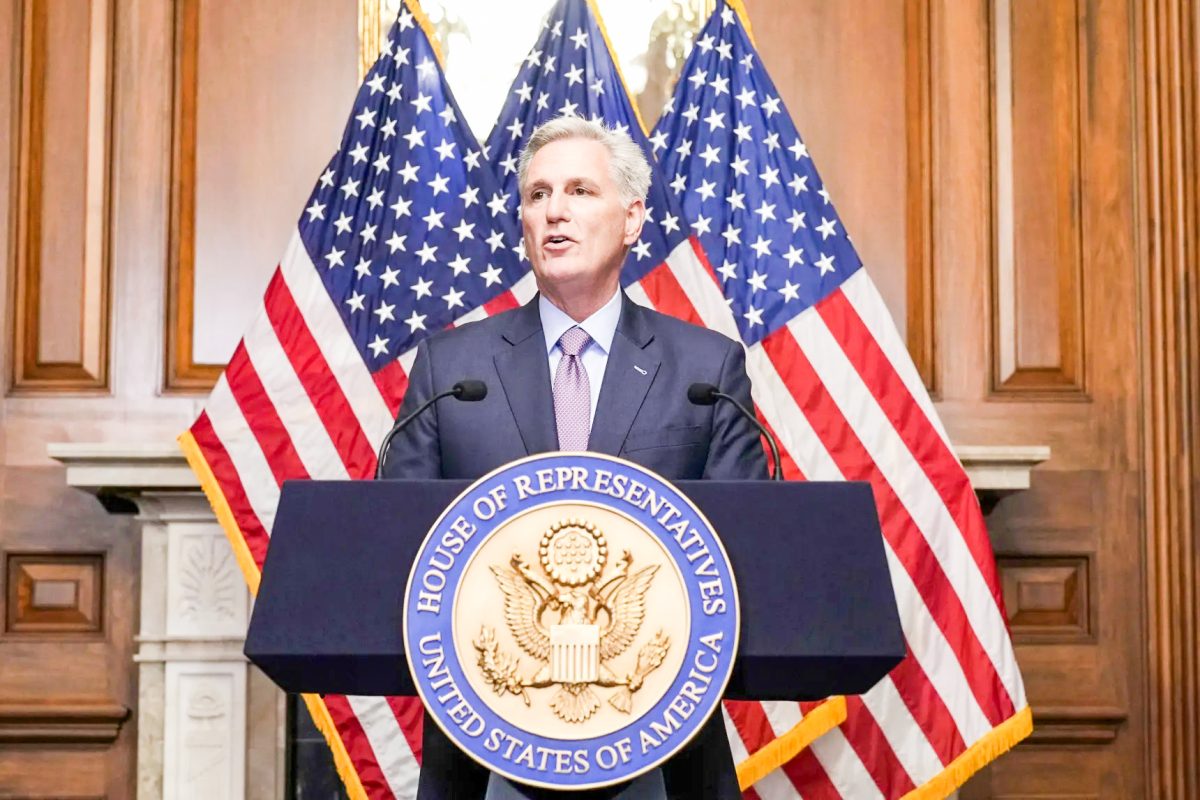The House of Representatives voted to topple now-former Speaker of the House Kevin McCarthy on Tuesday, a move unprecedented in American history. The monumental vote was precipitated by McCarthy reaching across the aisle to avert a government shutdown, a grave offense to the small band of conservative Republican firebrands that sought his removal.
“I mean, [this] crossed the line in terms of violating very much traditional norms of how the institution should function,” John Kincaid, government and law professor, said. “If those norms break down, the Constitution can break down as well. That’s what worries me here.”
The House remains without a speaker, who is the second in line for the presidency. Without a permanent speaker, the next in line for the presidency becomes the president pro tempore of the Senate, according to a Washington Post analysis. Currently, that role is filled by Patty Murray, a Washington state Democrat.
House Republicans intend to begin voting on a new speaker on Oct. 11 and, so far, two Republicans have announced their candidacies. Not among them: McCarthy. He declined to seek the speakership again, lashing out at Democrats for causing his downfall and trashing his Republican defectors as “angry and chaotic.”
At least one Republican who voted to remove the speaker cited McCarthy’s lack of support for increased birth control access while another referenced the general dysfunction of the chamber under McCarthy. But the prevailing narrative among the Republican rebels, led by Matt Gaetz of Florida, was that McCarthy’s sin was being too willing to work with Democrats.
In a Sunday post to X, formerly known as Twitter, Representative Susan Wild, a Democrat whose district includes Easton, thanked McCarthy for working to avoid a government shutdown.
“Let’s keep working this way!” she wrote.
Wild, a spokeswoman for whom declined to comment, was among the 208 Democrats – the entirety of the caucus present – who voted to oust McCarthy on Tuesday.
Democrats accused McCarthy of catering to “MAGA extremism” throughout his speakership and McCarthy, for his part, refused to share power with Democrats in order to keep the gavel.
Much to the chagrin of Democrats in the leadup to the speakership vote, McCarthy did not drop a Republican-led impeachment inquiry into Democratic President Joe Biden – an inquiry McCarthy himself instigated – nor offer to further fund Ukraine’s war effort, a priority among Democrats.
McCarthy’s downfall echoes back to his grueling ascension to the speakership in January. Just as on Tuesday, Gaetz and his henchmen then sought to sink a politician they felt to be too liberal. Only after 15 successive votes was McCarthy able to obtain the gavel, albeit by giving into many of the demands of his antagonists.
One such demand: A single representative could force a vote to vacate the speakership, a House rule that had been abolished when Democrats controlled the chamber. It is that procedural change that allowed for McCarthy’s removal on Tuesday.
College Republicans president Dimitri Chernozhukov ’25 wrote in an email that McCarthy did not do enough to acquiesce to the demands of conservative Republicans.
“The VAST majority of Republicans supported McCarthy, even if not enthusiastically, and their wishes need to be reconciled with the eight or so of their colleagues who got rid of McCarthy,” Chernozhukov wrote.
On the other hand, Jack Maloney ’25 of the College Democrats cited that more moderate congressional Democrats, such as Wild, did not come to McCarthy’s rescue.
“Ultimately, it seems like McCarthy’s downfall can be attributed to his failure to pick a side,” Maloney wrote in an email.



























































































































